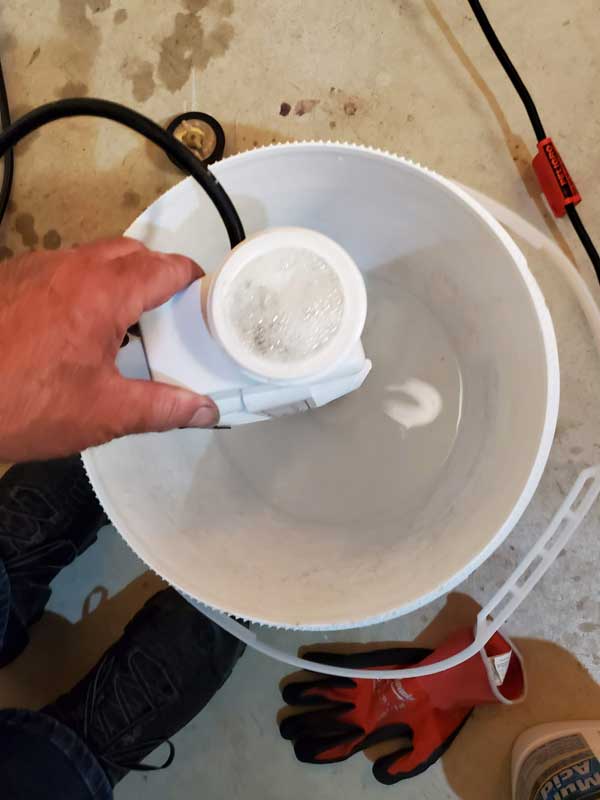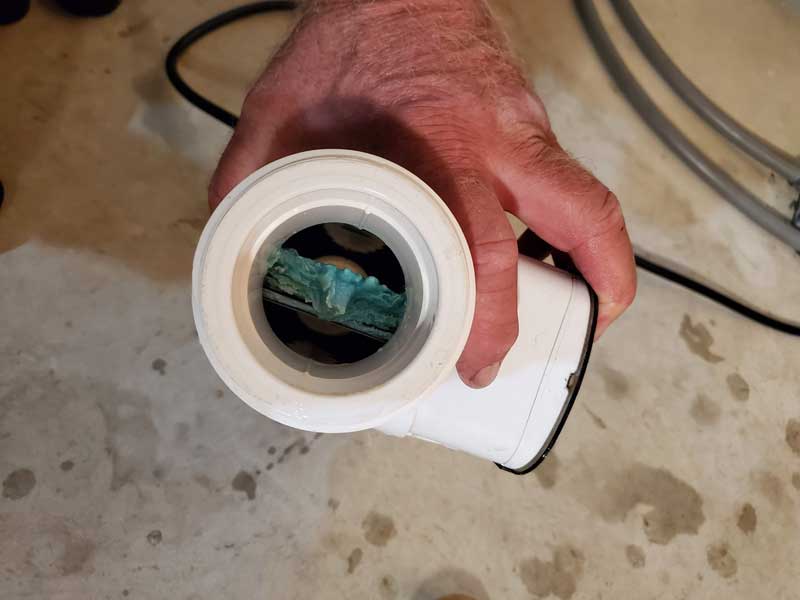Using borates to combat side effects of salt chlorine generators

Inherent in the way salt chlorine generators work are side effects, which can adversely impact the successful operation and appearance of a pool—namely corrosion and scale. Fortunately, borates can be used as a simple way to overcome many of these side effects. They are administered to the pool typically once a year. Borates are an extracted earth mineral that possess several benefits to recreational water. They are unique because they remain in the water and are only lost through water removal (e.g. splash out or backwashing). Adding borates during pool start-up is ideal, as they serve as an additional buffering system for the water.
One of the primary reasons borates have gained popularity among pool service professionals is their ability to control corrosion in a saltwater pool environment. Borate products are available in powders and slurries and should be added directly to the pool.
Borates have a buffering ability that allows pool water to remain at a more neutral pH level for a longer period. In turn, it allows the chlorine to be more efficient and effective at sanitizing the water, ensuring pool owners their pool will always be sanitized and safe.
Preventing corrosion
As mentioned earlier, the electrolysis that occurs in salt chlorine generators can cause de-plating problems on handrails, light niches, and other metal components. Fortunately, borates provide another buffering system for the water that eliminates these effects.
Since salt chlorine generators are sold to make sanitizing pool water easier, the last thing pool professionals want is this equipment to cause additional maintenance issues.
Borates add an anti-corrosion effect, which helps protect against rust on pool equipment, accessories, and fixtures. Customers who use borates are less likely to be in the store looking for a new ladder because their previous one rusted out. Even vinyl liners tend to last longer. These are things service techs and specialty retailers should emphasize to the customer as being worth the extra investment.
Preventing calcium scale

High calcium content can lead to scale formation (as well as cloudy water). Scale forms when calcium and carbonates crystallize on the pool’s walls around the waterline, surfaces, and equipment. This problem is compounded by high pH; however, borates can help fight this.
As salt chlorine generators have become almost standard equipment on most new pools, borates have become even more important because scale can reduce the life of the salt chlorine generator’s cell plates. By maintaining borate levels at 50 ppm in pools equipped with salt chlorine generating systems, pool professionals will find salt cells last much longer. The benefits are twofold: consumers will save by not having to replace the cell plates and service techs will avoid having to make an extra trip to the pool during an extremely busy summer.
In fact, many pool professionals are finding salt conversion cells on chlorine generators in pools where borates are being used can easily last a decade. This is a real selling point as even customers who ensure their pool water is balanced typically only get five to six years out of an equivalent cell.
The reason salt cells last longer when borates are used is because it bichelates (or bonds) with calcium present in the water, allowing the cell to remain cleaner because less scale forms. Although scale does form in some cases, it is a much softer scale and is easier to remove. Further, as less acid is required to clean the cell plates, plate damage is minimized as well.
Due to the high pH at the surface of the cathode plates within the salt chlorine generator, scale formation is highly likely. In fact, it is important to note scale formation will occur inside the salt chlorine generator even if the pool water is properly balanced.
To combat this, many service professionals start up pools with approximately 30 to 50 ppm of borates in the water, which normally lasts between one to two years. After about a year-and-a-half, it is typical for a service tech to need to add more borates to get the levels back up.






